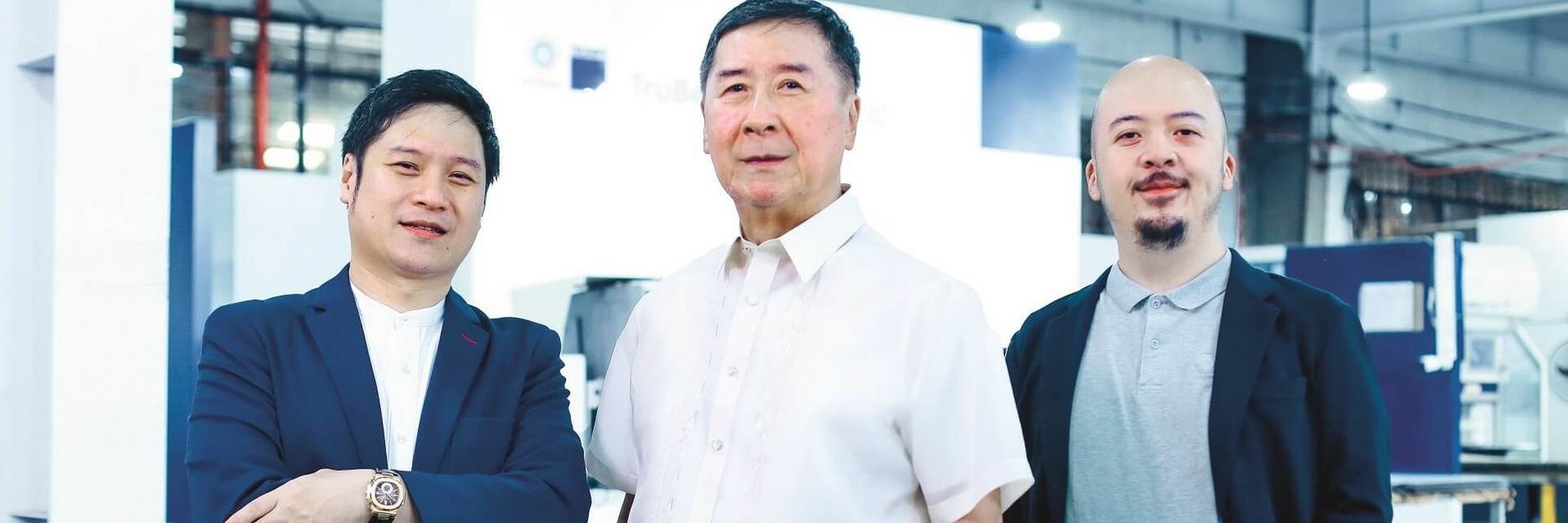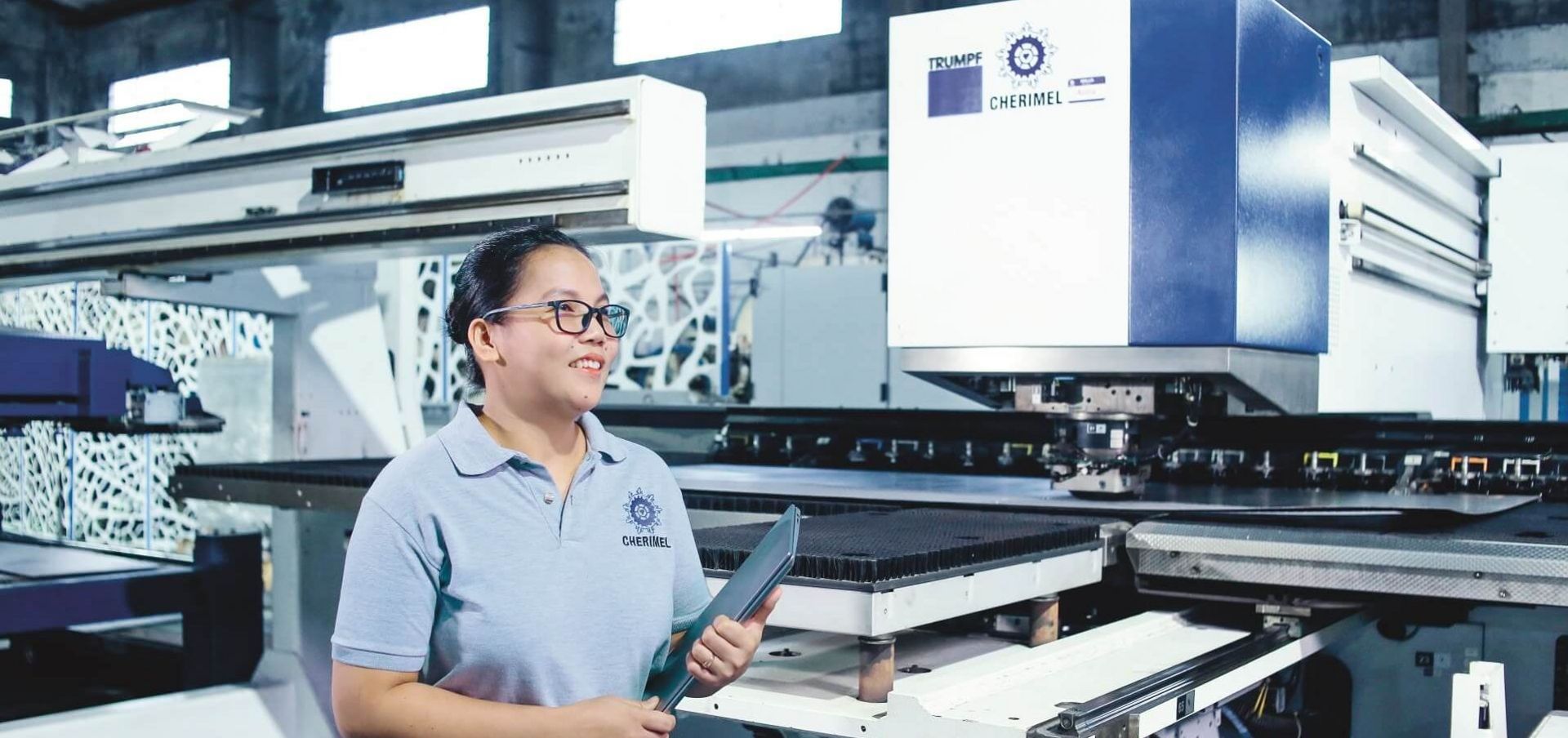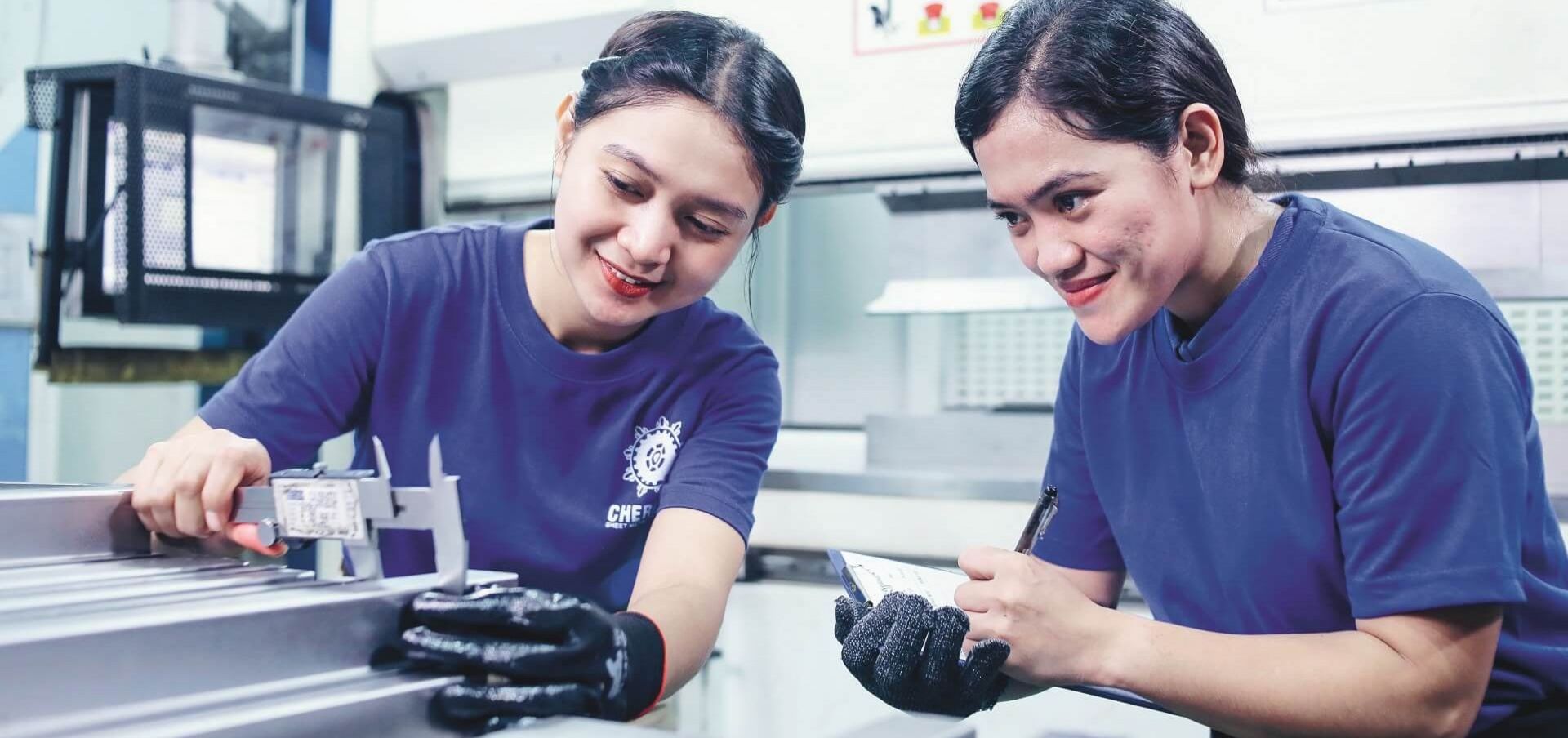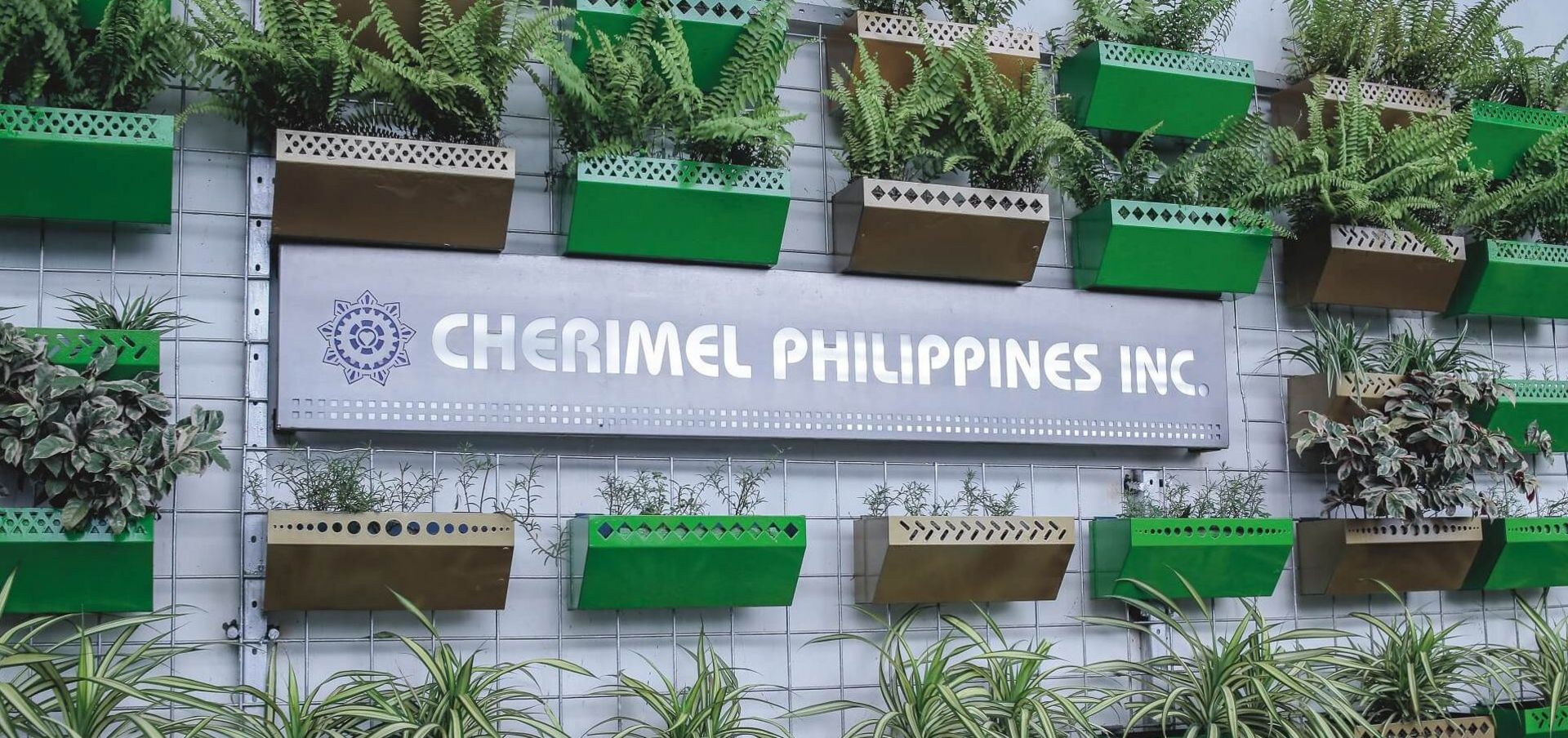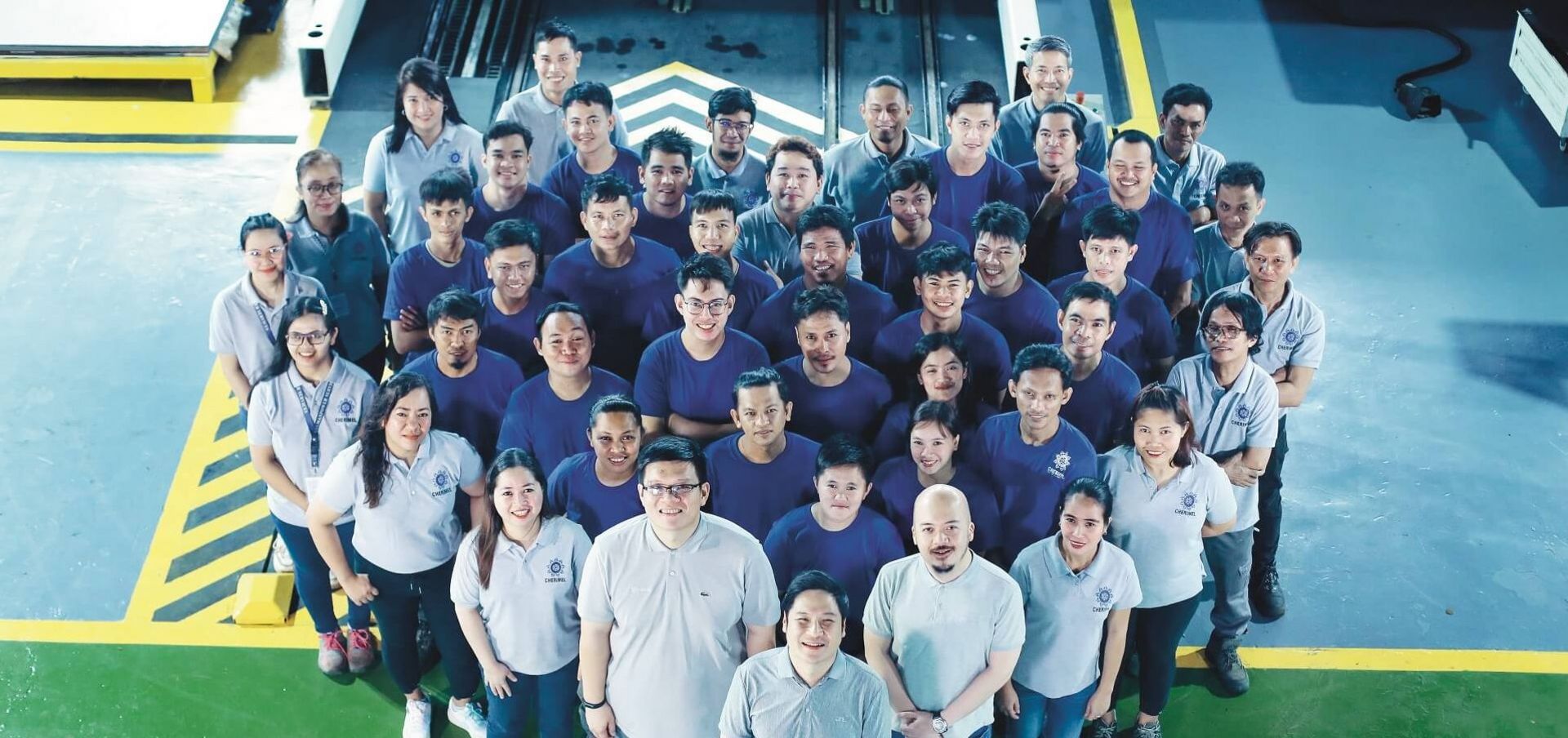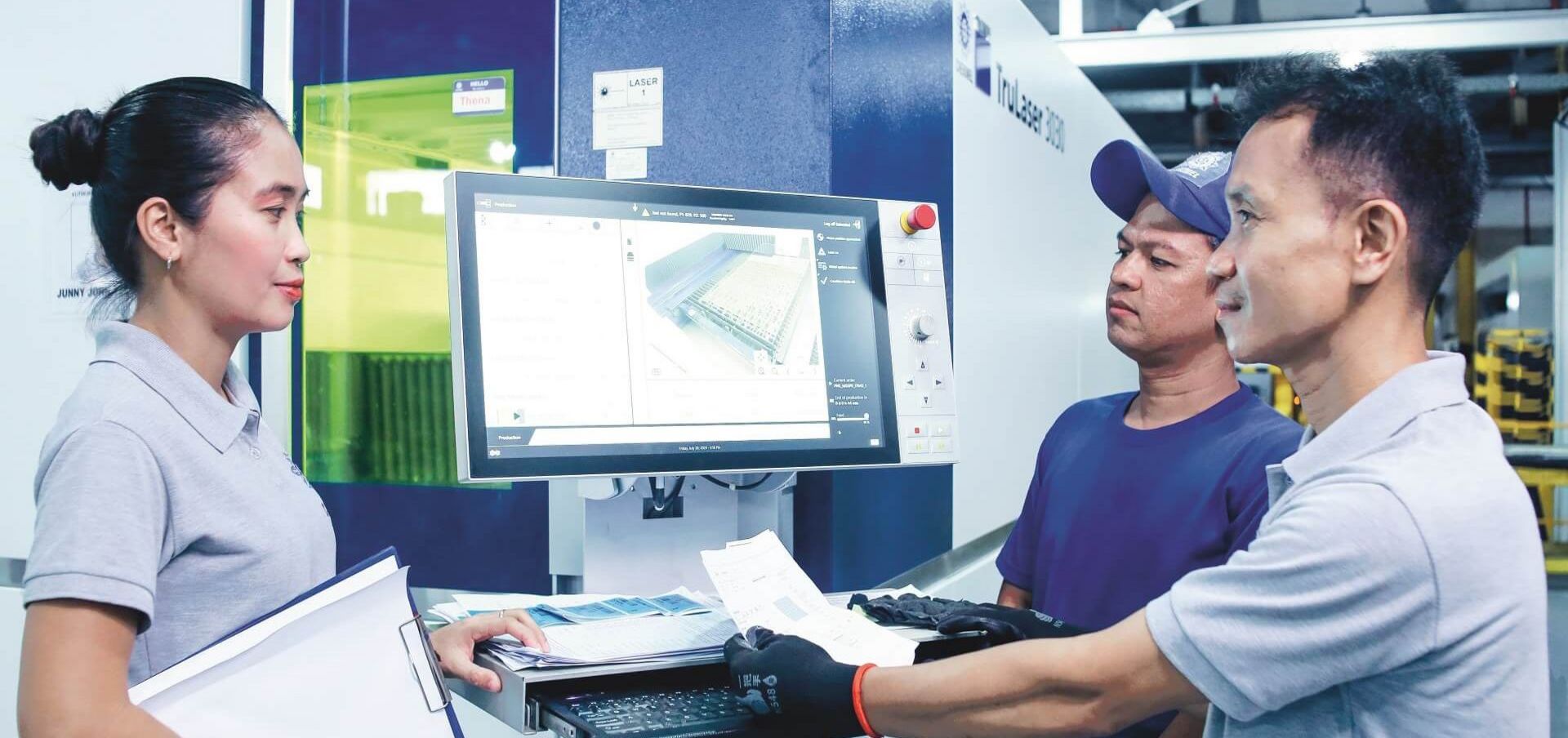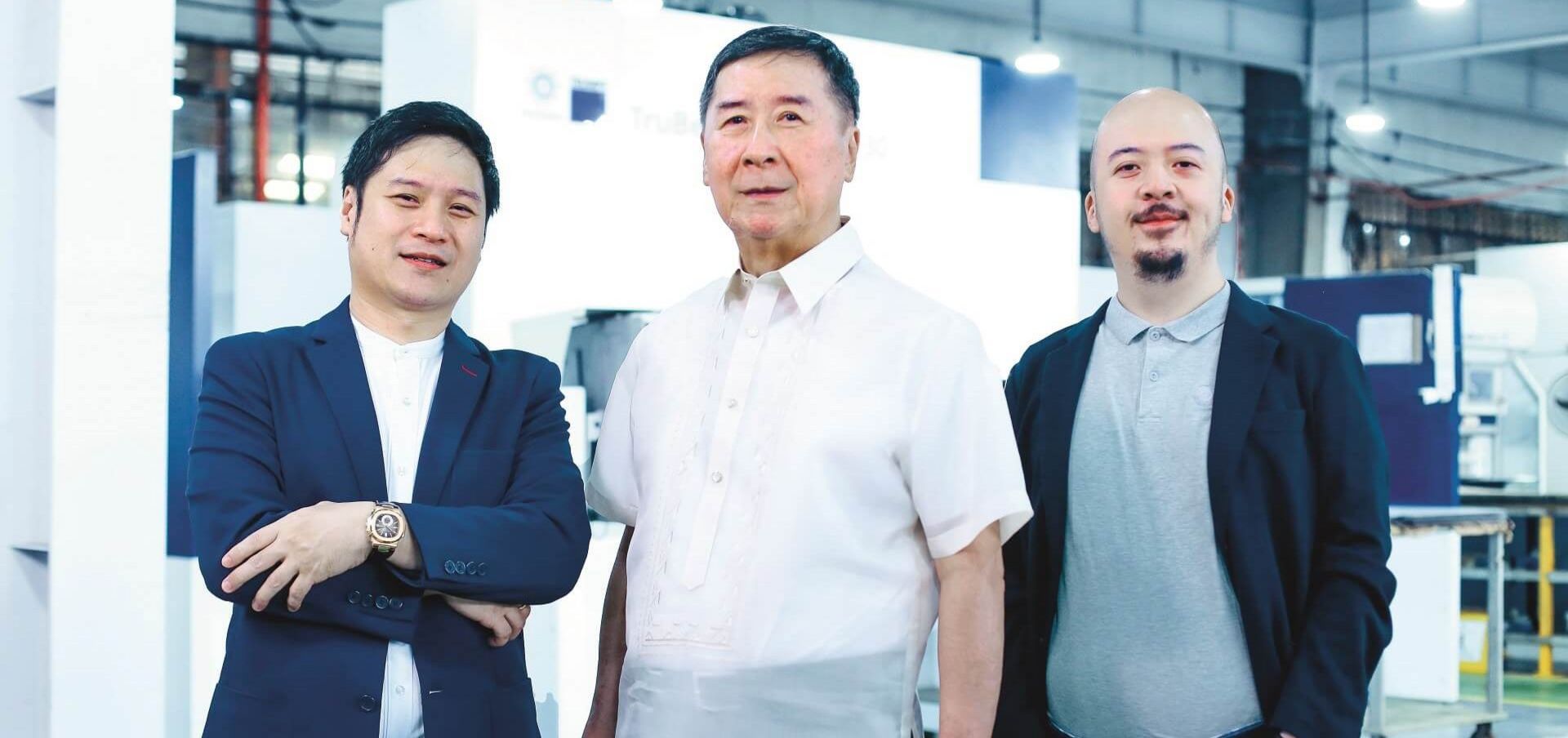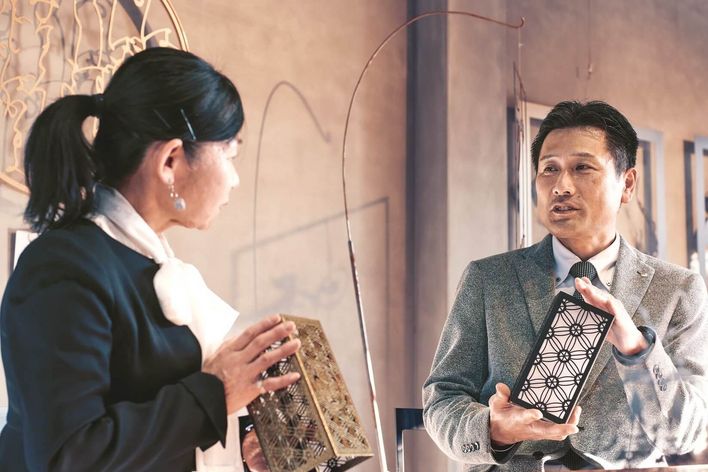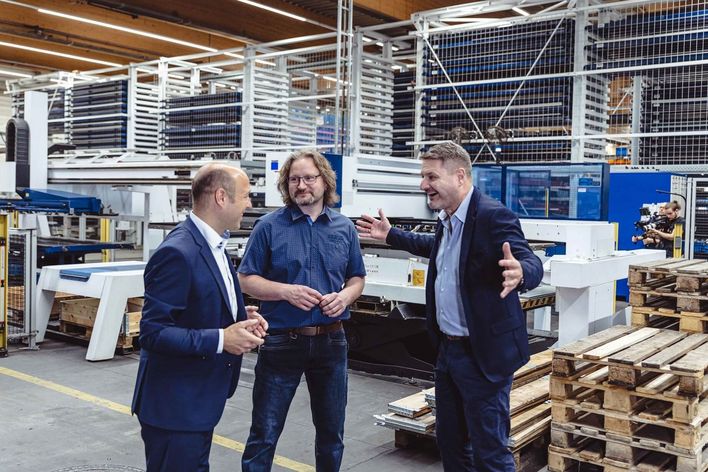The fact that Cherimel Philippines Inc. is on course for growth becomes apparent as soon as you enter the company car park. Many employees are already at work, their cars parked in rows in front of the four-metre-high metal gates to the production facility. Cherimel is headquartered in Caloocan, a city in the north of the metropolitan area of Manila, the capital of the Philippines. Tall trees sway above the outer walls of the company premises, while lush greenery fills the open spaces between the buildings. The company logo is surrounded by a lattice of planters filled with ferns, palms and other plants, an eye-catching piece of metalwork made by Nathaniel and Andrew Cu themselves. "That was our very first laser, a three-kilowatt machine," explains Nathaniel Cu, gesturing towards a TruLaser 3030 just behind the metal gates. This laser heralded the start of Cherimel's development into a high-tech company that can handle virtually any metalworking task – and also marked TRUMPF's entry into the Philippine market.
Named after the founder's daughters
Nathaniel and Andrew Cu are the third generation of their family to take the helm at Cherimel. They have managed the company since 2010; their father Jeffrey Cu has been President of the company since 1994. However, the origins of Cherimel go back as far as 1950, when their grandfather Paul Eiaw founded the Cherimel Manufacturing Corp. It was only when Jeffrey Cu took over the company in 1994 that he changed the name to Cherimel Philippines Inc. He retained the first word Cherimel, which is made up of the names of his father-in-law's daughters, Cherie and Nellie. "Our grandfather decided not to correct the mistake made by the registration authorities, who had written an 'm' instead of an 'n'," says Nathaniel Cu.
Over the years, each generation of the family has left its own mark on the company. Nathaniel and Andrew Cu's grandfather was perhaps best known for being the first person in the world to make paper clips and the delicate metal legs of old Singer sewing machines. And he also had fun making his own vehicle jacks. "Our grandfather loved making things that nobody else wanted to make," recalls Nathaniel Cu. He also manufactured the first stamped sheet metal parts for the motorcycle industry, including the metal plates for the vehicle identification number (VIN) and model name. Their father, Jeffrey Cu, drove the company's expansion, moving the headquarters to the new site in Caloocan in the early 2000s and growing the portfolio to include customers from the automotive industry.
The company's motto is "Cherimel can do the job" – an indication of just how hard it works to satisfy the needs of its customers. Rather than concentrating on a specific industry or product group, the Cu family decided to remain as agile and versatile as possible and to focus on growth. Today, the company employs 90 people. In 1994, when Jeffrey Cu took over the company, there were fewer than 30 members of staff. "When I took charge, my aim was to build a high-tech manufacturing company," explains Nathaniel Cu. At that time, Cherimel could only bend and punch sheet metal, but not cut it. "We were struggling to fulfil certain customer requests, so we really needed a laser," says Nathaniel Cu. In 2015, he ordered a TruLaser 3030. This machine cut its first sheet metal parts in January 2016. At this point, the demand for stamped items was declining, so it was just the right time to fundamentally restructure the company's production line.
A trailblazing sector in the Philippines
In the early 2000s, TRUMPF did not yet have access to the Philippine market. Lots of local companies were working with other manufacturers. TRUMPF did not yet have a team of service engineers in the country, and Cherimel did not yet have the German high-tech company on its radar. The situation looks a little different today. A green lane winds its way through the 5,000 square metre production hall, past metal cabinets ready for dispatch, ATM housings and yellow and red display cases for a well-known fast food chain. The machines are neatly lined up between the finished products – three TruLaser 3030s providing three, six and ten kilowatts of power, two TruPunch 5000s, the TruBend Center 5030, a TruBend 3100 and a TruBend 7036. TRUMPF is also set to deliver a TruBend 5170 in February 2024.
Over an eight-year period, Cherimel has purchased a new TRUMPF machine every year. This systematic transformation into a high-tech company enables it to accept more complex orders. While their grandfather manufactured products for the motorcycle industry and their father concentrated on the automotive sector, the two Cu sons are now busy opening up new markets. As an ISO and AS approved company, Cherimel is ideally positioned to supply the aerospace industry. In addition to parts for truck chassis, the company also manufactures bodywork parts in its modern plant. As this is such an extensive area of activity, space in the plant is becoming increasingly scarce.
Next step? The smart factory
The Cu brothers' next aim is to convert the production facility to a smart factory. For Nathaniel Cu, one thing is clear: "Digitalization is the key to even greater efficiency. Our vision is to create an efficient, paperless system for our suppliers and customers alike." TRUMPF is also lending a helping hand in this context, as the company's Oseon software facilitates the next step towards fully automated sheet metal processing. "We want to build an agile company with unlimited capacity that utilizes resources even more efficiently. This ensures that we can offer our customers an even more sustainable manufacturing process," says Nathaniel Cu.
Andrew and Nathaniel Cu's father was an electrical engineer with a vision; someone who believed in sustainable products that can be recycled and reused. The brothers are committed to carrying forward the vision encapsulated by their father in the company logo. The Cherimel logo hangs in the middle of the planters at the entrance to the production hall – cut from sheet metal, it shows a cog with a heart in the center, protected by a ring of nine sunbeams. In religion and mythology, the number nine is synonymous with completion and fulfillment. And that sums up Cherimel – a company that gets the job done for its customers.

